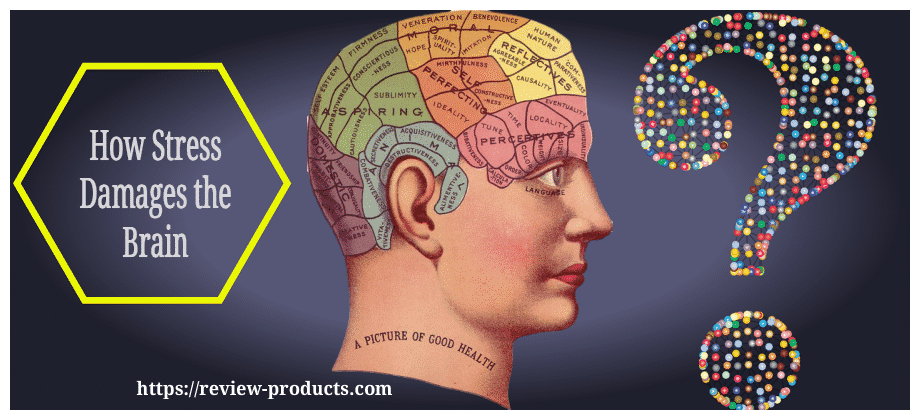
- 4 Hours rest but for reasons unknown you are tired every day.
- Is there a remedy or remedies for my body behavior.
- I will discuss the subject in this article.
4 Hours rest but for reasons unknown you are tired and that is constantly always. I would openly say that a lot of us in our modern society wish we had more energy, in a day. But for some reason or other, it is a bigger issue than we want to believe for others. If waking up in the morning and you find yourself feeling thoroughly drained, or you are getting back home from work, and you are experiencing no will to do anything, then you might be at your rope’s end trying to find a solution.
Why will nothing work? Why do all the ‘lifehacks’ end up disappointing? There are a few different possibilities.

Then, believe you are Stressed out
That live above might sound like an obvious one, but if you are extremely stressed at your work, then it possible you might find yourself with very little or no motivation or energy outside of it. It is also true if you’re overtraining or generally pushing yourself too far.
The issue here to consider is with a term used in the medical community as ‘adrenal fatigue. Fatigue implies that a person pushed their neurotransmitters and hormones in the body too far which are responsible for arousal. The problem by pushing neurotransmitters and hormones too hard will eventually make them run dry. So what’s your body is left feeling listless and drained.
The plan then is either to investigate the cause of the stress and fatigue that you are experiencing and eliminate it from your routine. Or better yet to find more productive ways of managing and coping with the situation. Most times, it is just taking work or a much-needed rest which can be a big relief.
Is your environment all that Severe?
If you find yourself feeling broken during the morning times, the possibility here it can be as a result of something damaging in your immediate environment where you sleep. Typical examples might include mold or allergens coming through the window or some other opening. A possibility is that you might be experiencing a hay fever. Another factor to consider, there is little or too much too moisture in the air which can also create related problems for you.
Well-known Deficiencies

Another factor here is that one could sometimes feel drained is that we’re missing out on essential nutrients. Also, if you are known to have a vitamin B12 deficiency, this in most cases can cause tiredness. Added to that if you are also experiencing other symptoms like shivering extremities. Furthermore, defects in various other nutrients can create a range of other problems from headaches to brain fog and too poor sleepiness.
Have symptoms as memtion above, make sure you are consuming a very well-balanced diet and think of a blood test if your energy levels are chronically low average level.
Think too about more fundamental things – if you aren’t getting enough water, for example, this alone can be enough to hurt your energy levels and your overall wellbeing seriously. Likewise, so too can not eating enough generally!
Hormones
Your hormone balance is mainly responsible for your energy levels, as well as your physique and our mood. A lot of things can affect this, from numerous health conditions to a generally fast or slow metabolism, to medications. If you find it hard to lose or gain weight and your energy levels are low, then again, consider seeing your doctor as you may find that you have a hormonal imbalance.
Benefits of Medication
Medications can influence your hormone balance. For example, oral contraceptive pill, while other drugs such as sleeping aids which can likewise have consistent negative results. Also, some sleeping medications that can often leave you feeling groggy and the same goes to anti-anxiety drugs and anxiolytics.
Don’t ignore your situation if you’re always tired; the advice is to see your family physician about it!
4 Hours rest but for reasons unknown you are tired Constantly. Therefore, why you must stress less
We all know that stress is bad for us and this is something we get told very often. However, it’s all too easy to write this off as being a minor nuisance or frustration rather than anything to really worry about. We all get stressed from time to time, right? In reality, though, this is the wrong way to think about stress. While it is relatively commonplace that is not to say that it isn’t severe. In fact, the pressure is incredibly harsh and can cause severe problems both in the short term and long term.
Stress can shorten your lifespan. Ruin your enjoyment. Cause serious illness. Shrink your brain. Hurt your performance. Ruin your relationships. Cause Impotence.
Do those sound like small matters?
To understand this better, it can help to look more closely at what precisely stress is. How it causes the problems it does and how and why you need to do everything you can to prevent and reduce it.
So What Exactly is Stress?
Stress is what we feel when we’re overworked, when we’re dreading something that’s about to happen or when we’re generally unable to relax and stay calm due to the outside or inside factors influencing our thoughts. But it actually goes beyond this. Stress is a primary physiological reaction that is designed to help us focus and survive. In itself, it is not a bad thing and is actually somewhat adaptive.
The problem is that it has been taken out of context, which means the positive effects become outweighed by the negative. Essentially, stress is what causes the ‘fight or flight response.’ This is a physiological response to perceived danger, designed to improve our chances of survival. If you were to see a lion, for example, this would trigger a cascade of effects collectively resulting in the stress response.
This begins when we observe danger or experience fear. Increased activity in our brain, causes the release of adrenaline, as well as dopamine, norepinephrine, and cortisol – our stress hormones. These then trigger some physiological changes: increasing our heart rate, making us breathe more quickly and making us more acutely focussed on the potential threat.
A list of the symptoms should include:
- Increased heart rate
- Rapid, shallow breathing
- Muscle contraction
- Tunnel vision
- Heightened sensitivity
- Increased blood viscosity
- Suppression of the pain response
- Destruction of the immune system
- Suppression of the digestive system
- Dilation of the pupils
- Dilation of the blood vessels
Reduction in prefrontal cortex activity (
In the short term, this is good for us. In a short time, these things help us to evade danger and win combative situations. Increased muscle tension makes us stronger. Increased blood viscosity makes our blood more likely to clot in case of an injury. Dilated pupils let more light in to improve our vision. Suppression of secondary functions means that more blood can be sent to the muscles and the brain. Reduced pain means we can carry on fighting or running despite the injury.
In short, anything that can help you to survive is prioritized, while secondary functions are suppressed. The idea is that once we get to safety, we can then turn off this fight or flight response and instead enter the ‘rest and digest’ state to recover. Once the predator is gone, we can improve. But the problem is that in our modern environments, predators aren’t the main problem.
It’s rare these days for us to be chased, to get into a fight or to need to escape a forest fire. What’s not so unusual, is for our boss to shout at us and to tell us that we’re late for our deadline. It’s not rare for us to be in debt. It’s not unusual for us to have marital problems. And unfortunately, the brain interprets all these signals in just the same way: as threats. And this causes the same fight or flight response.
But because these types of threats aren’t so quickly resolved, this means we’ll often end up on heightened alert for a more extended period. This is also why stress causes impotence in men. If you are highly stressed, blood is sent everywhere except the genitals! And this takes a tremendous toll on our bodies.
As you might imagine: it is not good for you when your immune system and digestive system are suppressed for days. It’s also not good for your brain to be flooded with norepinephrine and cortisol. It’s not good for your heart rate to stay elevated, or your blood pressure to remain high. This is the problem with chronic stress as opposed to acute stress.
And it’s a problem with heightened levels of stress, as opposed to the gentle, motivating force of ‘eustress.’ We’ll look at all of this more in the long term, but suffice to say that the more extended stress like this continues, the more you start to feel drained, malnourished, fatigued, ill and possibly eventually depressed.
How Stress Damages the Brain

When we are stressed, it effectively makes us less intelligent. This is due to the reduction in pre-frontal activity, which in turn is designed to make us more focused and alert. Essentially, the pre-frontal cortex is the part of the brain responsible for forwarding planning, creative thinking, and other ‘high-order’ brain activity.
When you are being chased by a lion though, it is really not the time to be thinking about the meaning of life!
So shutting down this part of the brain and placing your focus on feedback from your senses makes much more sense. Of course, that’s not particularly useful in the workplace through: and this is why the stress response is so seriously unhelpful when we have to give a presentation, answer a question on the spot or go on a date.
This is when we lose all articulation and start stammering and saying useless things. Slightly longer-term is adrenal fatigue. This is what happens when your brain has exhausted its supply of adrenaline and other stress hormones. That might sound like a good thing, but you actually need a little norepinephrine, dopamine, and cortisol to stay motivated – and even to wake up in the morning! Adrenal fatigue leaves you listless, demotivated and potentially depressed.
It can also cause what is known as ‘learned helplessness’ – a condition where you essentially wholly give up because your brain has been conditioned to learn that any attempts to change its situation will be met with failure.
Not good! You had
4 Hours rest but for reasons unknown you are tired and stress out

Worse, when you are highly stressed, it can lead to long-term problems for your brain health. As we briefly mentioned: it can literally shrink your brain! Studies show that in the long term, it leads to structural changes that shrink the hippocampus and shrink grey matter – the all-important neural connections throughout the brain.
Even a single, severe traumatic event can result in significant reductions in the medial PFC, anterior cingulate and subgenual regions of the brain. The effects of ‘cumulative adversity’ meanwhile, cause smaller volumes in the medial prefrontal cortex (the PFC), insular cortex and anterior cingulate regions.
These regions of the brain correspond with emotional control, decision- making, reasoning and self-control.
In other words, the eventual result of stress is to leave you more reactionary, more depressive, more impulsive and less disciplined. From here, every aspect of your life will start to see adverse effects. But there are things you can do about it.
- 4 Hours rest but for reasons unknown you are tired – fair statement?
- 4 Hours rest but for reasons unknown you are tired – work too hard?
- There are many natural and scientific medication on the market








